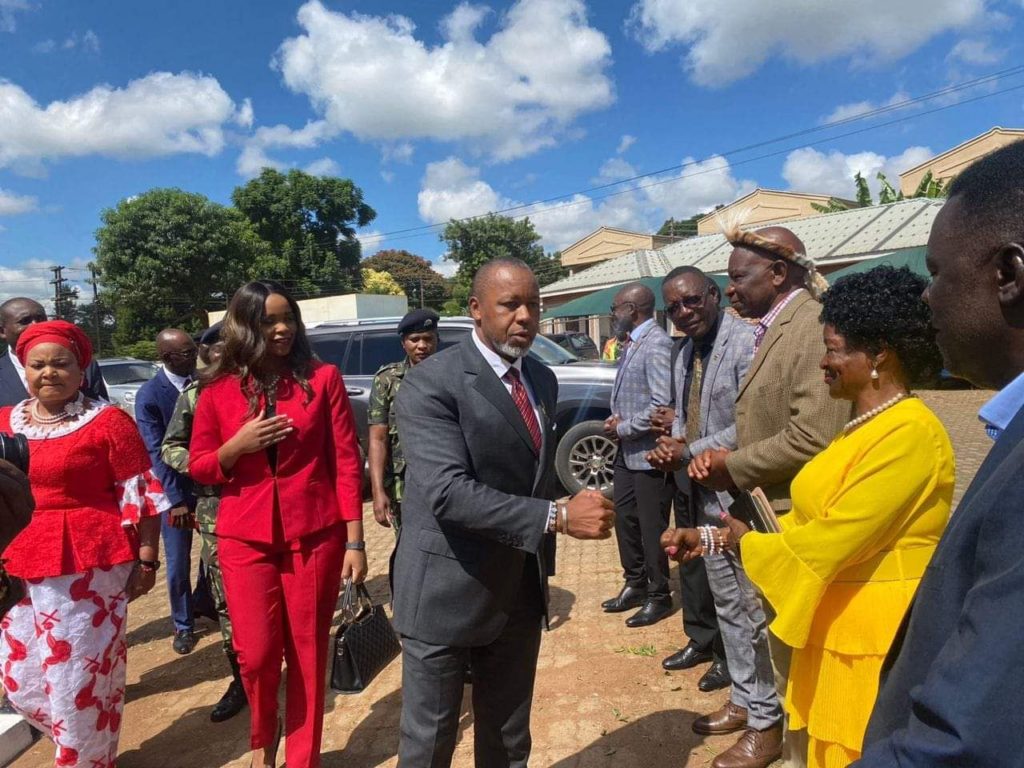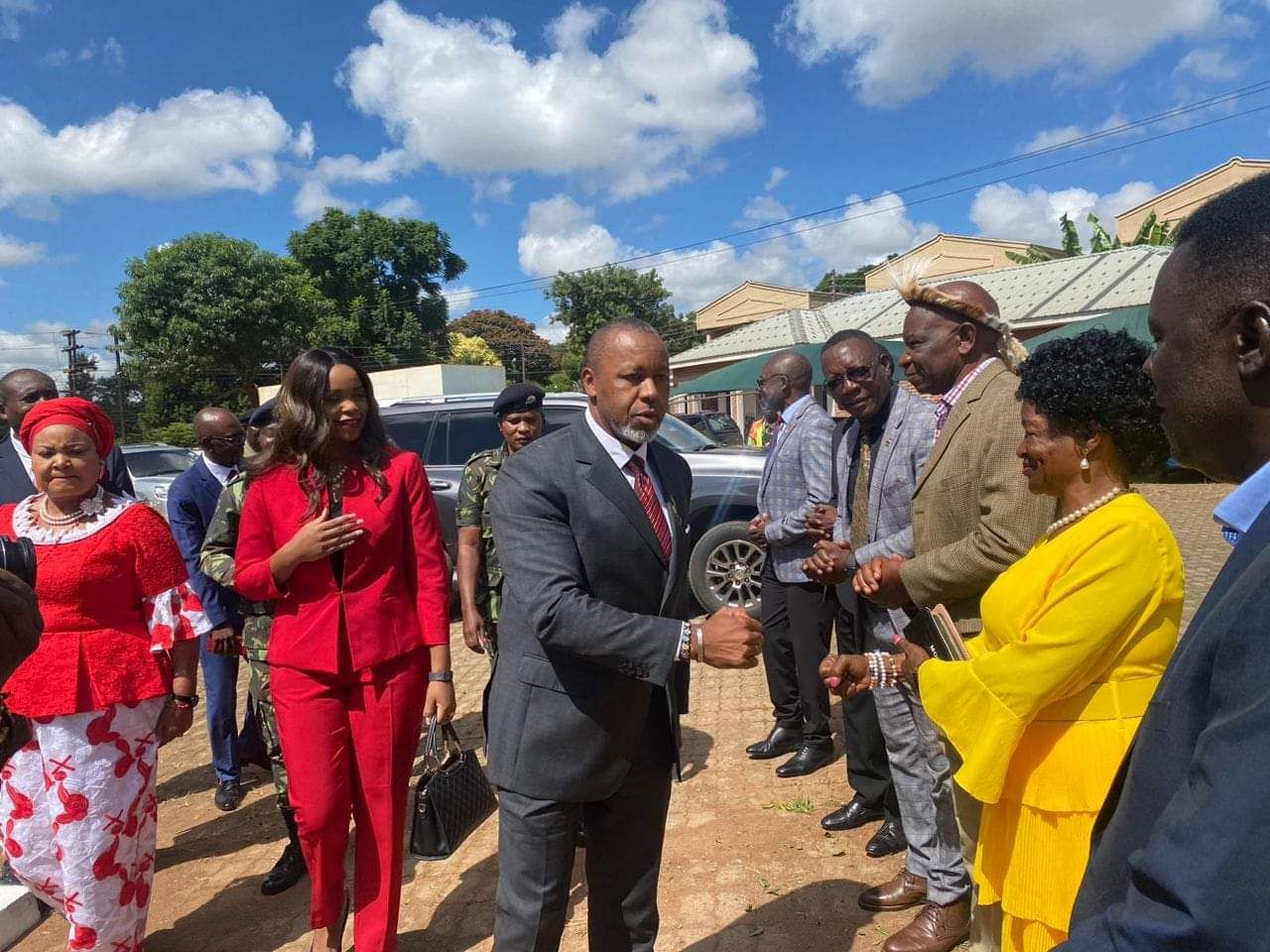By Twink Jones Gadama
The recent ruling by the High Court in Lilongwe regarding the sensitive documents in the Vice President Saulos Chilima corruption case raises important questions about the balance between transparency and accountability in the legal system. The court’s decision to caution that some of the documents are highly sensitive and may not be suitable for public disclosure highlights the challenges faced by the judiciary in ensuring a fair trial while also upholding national security interests.
One of the key issues at play in this case is the tension between the right to a fair trial and the need to protect sensitive information. The court’s recognition of the sensitive nature of the documents being sought by the defense signals that there are legitimate concerns about the potential impact of public disclosure on national security. However, the court also emphasized the importance of ensuring a fair trial for the accused, suggesting that if the documents are deemed relevant to the case, the state may have to make a difficult decision about whether to proceed with prosecution or terminate the case.
In a democracy, the principle of transparency is essential to holding public officials accountable for their actions. The right of taxpayers to know how their money is being spent and to hold those in power to account is a fundamental aspect of democratic governance. However, in cases involving sensitive information, such as national security issues, there may be legitimate reasons for withholding certain documents from public view. In such cases, the judiciary plays a critical role in balancing the need for transparency with the need to protect sensitive information.

In this case, the court’s decision to allow a limited viewing of the sensitive documents by key stakeholders, including the defense team lead lawyer, the Attorney General, and the lead lawyer from the Anti Corruption Bureau, is a sensible compromise. By allowing these individuals to review the documents in a controlled setting, the court is ensuring that all parties have access to the information they need to prepare their case while also protecting the sensitive nature of the information.
The court’s ruling also highlights the importance of safeguarding the right to a fair trial for all individuals accused of wrongdoing. In a just legal system, all parties must have equal access to evidence and information relevant to the case in order to present a strong defense or prosecute the case effectively. By making it clear that the state will have to decide whether to disclose the sensitive documents or terminate the case if they are deemed relevant, the court is sending a message that justice must be the top priority in this case.
Overall, the case of Vice President Saulos Chilima raises important questions about the role of the courts in balancing the interests of transparency, accountability, and national security. By carefully considering the sensitive nature of the documents at issue and providing a mechanism for key stakeholders to review them in a controlled setting, the court is working to ensure a fair trial for all parties involved. In a democracy, the rule of law and the protection of individual rights must always be the guiding principles of the legal system, even in cases wherThe recent ruling by the High Court in Lilongwe regarding the sensitive documents in the Vice President Saulos Chilima corruption case raises important questions about the balance between transparency and accountability in the legal system. The court’s decision to caution that some of the documents are highly sensitive and may not be suitable for public disclosure highlights the challenges faced by the judiciary in ensuring a fair trial while also upholding national security interests.
One of the key issues at play in this case is the tension between the right to a fair trial and the need to protect sensitive information. The court’s recognition of the sensitive nature of the documents being sought by the defense signals that there are legitimate concerns about the potential impact of public disclosure on national security. However, the court also emphasized the importance of ensuring a fair trial for the accused, suggesting that if the documents are deemed relevant to the case, the state may have to make a difficult decision about whether to proceed with prosecution or terminate the case.
In a democracy, the principle of transparency is essential to holding public officials accountable for their actions. The right of taxpayers to know how their money is being spent and to hold those in power to account is a fundamental aspect of democratic governance. However, in cases involving sensitive information, such as national security issues, there may be legitimate reasons for withholding certain documents from public view. In such cases, the judiciary plays a critical role in balancing the need for transparency with the need to protect sensitive information.
In this case, the court’s decision to allow a limited viewing of the sensitive documents by key stakeholders, including the defense team lead lawyer, the Attorney General, and the lead lawyer from the Anti Corruption Bureau, is a sensible compromise. By allowing these individuals to review the documents in a controlled setting, the court is ensuring that all parties have access to the information they need to prepare their case while also protecting the sensitive nature of the information.
The court’s ruling also highlights the importance of safeguarding the right to a fair trial for all individuals accused of wrongdoing. In a just legal system, all parties must have equal access to evidence and information relevant to the case in order to present a strong defense or prosecute the case effectively. By making it clear that the state will have to decide whether to disclose the sensitive documents or terminate the case if they are deemed relevant, the court is sending a message that justice must be the top priority in this case.
Overall, the case of Vice President Saulos Chilima raises important questions about the role of the courts in balancing the interests of transparency, accountability, and national security. By carefully considering the sensitive nature of the documents at issue and providing a mechanism for key stakeholders to review them in a controlled setting, the court is working to ensure a fair trial for all parties involved. In a democracy, the rule of law and the protection of individual rights must always be the guiding principles of the legal system, even in cases where sensitive information is at stake.stake.



